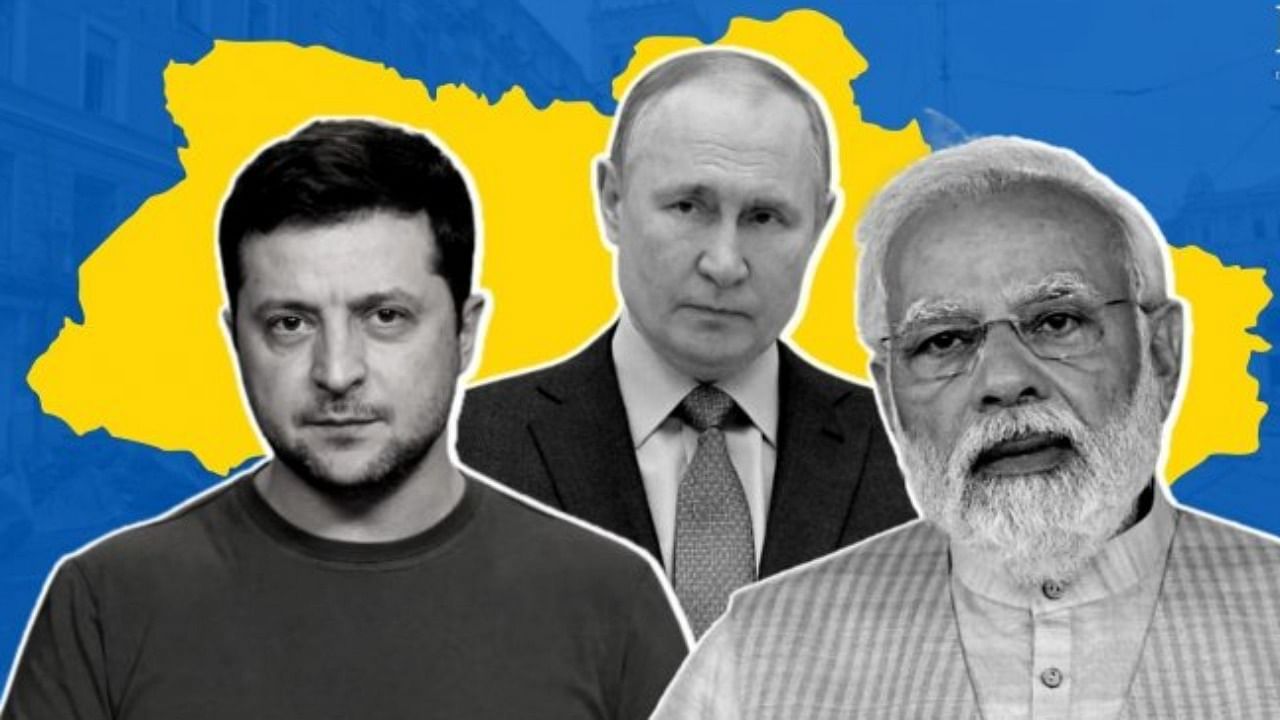
India’s policymakers understand that 13 months after the Ukraine war began, the world order will not survive in its previous form; and the country has to adapt quickly, since a prolonged period of big power confrontation is to be expected with Russia and China, having entered a deeper alliance, challenging the United States and the West’s centuries-old dominance.
The struggle is attritional, and endemic to prolonged transitions. Meanwhile, the Ukraine crisis revealed an increasingly complex international picture, as important emerging economies — such as Brazil, India, South Africa, and most of West Asia — refuse to take sides with the West and assess their economic advantages and the opportunities to enhance their own geopolitical and diplomatic standing.
Without doubt, the Global South will play a major role in shaping the outcome of the current struggle — and, indeed, many among them and their regions remember the brutal era of colonialism, and the bitter legacy of the US hegemony in the recent past. A great revision of the world order is under way. The bell tolls for the end of Western dominance of the international system.
Also Read | War in Ukraine and India’s liberals
India must not lose sight of three attributes of the emergent geopolitical reality. First, this is the real beginning of the post-Cold War era. The past three decades turned out to be an interregnum, imbued with the West’s triumphalism and delusional notions of the ‘end of history’ — that Western values were universal values, and Western political and economic systems epitomised the pinnacle of human civilisation.
Sections of the Indian elite are yet to grasp the truism that great power ascendancy correlates strongly to available resources and economic durability. Military overstretch and the accompanying relative decline are lethal threats facing powers whose ambitions and obsessive drive for security are greater than their resource base can provide for.
Second, India was a marginal player on the international arena in 1991, but today, it no longer enjoys the latitude to hide behind strategic ambiguity. The Global South expects — even demands — that India positions itself equivocally on the great issues of the day, commensurate with its growing economic prowess. The ‘unipolar predicament’ that India’s most consequential relationship is with the US has become archaic.
Expectations are high that India will be on the right side of history — and be an anchor sheet of a democratised world order and of global governance rooted in genuine multilateralism, where all countries, big and small, have the space and freedom to choose their way of life. India should not shrink into the mindset of a ‘swing’ state or remain a ‘counterweight’ in the toolbox of some big power, content with short-term gains.
Third, the trajectory of world politics is showing that the relative strengths of the leading nations in world affairs never remain constant. The China-brokered Saudi Arbia-Iran normalisation is a telling example. This is “principally because of the uneven rate of growth among different societies and of the technological and organisational breakthroughs which bring a greater advantage to one society than to another,” as Paul Kennedy, the British historian, wrote in his masterly work ‘The Rise and Fall of the Great Powers’.
This third attribute poses a massive predicament for India, as it also involves coming to terms with the historic rise of China. The Indian narrative has lost its appeal in the contemporary situation. India’s national priorities of development through the corridor of time stretching a quarter century that lies ahead, will ultimately be the decisive factor in its emergence as a great power.
India’s destiny lies in an ‘Asian Century’. With Russia turning eastward in a historic pivot, giving primacy to robust relationships with both China and India, and envisaging the RIC and BRICS as two pillars of the new world order, a rare opportunity is at hand. India should seize the opportunity. Do not fall for Western propaganda that Russia is becoming a ‘junior partner’ of China.
It is preposterous that two civilisation states like Russia and China can ever hope to cohabit in a hierarchical order. A brief attempt in the forties and fifties ended in a raucous schism and neither Moscow nor Beijing wants a replay of it. These two great powers, bestowed with profound intellectual resources, understand the limitations of a constrictive alliance, and have opted for a new type of relationship that goes beyond any alliance system in modern history in its space to navigate interests. It provides a model for India-China relations.
(MK Bhadrakumar is a former diplomat.)
Disclaimer: The views expressed above are the author's own. They do not necessarily reflect the views of DH.